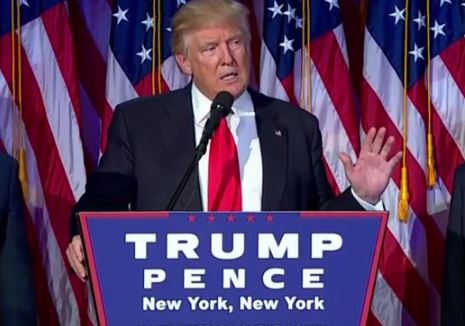How will Trump presidency affect biosimilars in US?

Donald Trump has not yet taken office, but there is talk of major changes to health insurance and FDA regulation once the new president moves into the White House in January.
As the US took stock of his shock election victory last week, Trump published a brief update on a key campaign pledge: to repeal president Obama’s Affordable Care Act (ACA).
Scrapping the ACA could mean 20 million people losing health insurance coverage, but Trump has signalled willingness to retain some of its elements.
Meanwhile, pharma and biotech stocks were among the highest risers following Trump’s election, based on the belief that the threat of an attack on pharma pricing may have receded.
Another eye-catching development in the last few days is the release of a (characteristically vague) policy document, stating that Trump would seek to reform the FDA, putting greater focus on “new and innovative medical products”.
An FDA reform programme may be further down the list of priorities than reforming Obamacare - or indeed the headline issue of deporting three million illegal immigrants.
Trump has already admitted that he may have to keep parts of Obamacare – such as the requirement that people with pre-existing conditions are still covered by health insurance.
Children living with at home for an extended period will still be able to stay on their parents’ health insurance plan, Trump added.
But there is already speculation that the Trump administration may have implications for another important Obama healthcare reform – legislation allowing for approval of biosimilars.
These are cheaper copies of complex biologic medicines, approved based on a dossier demonstrating that the copycat drug is so close to the originator product that it can be used in its place.
Commentators suggest that it’s unlikely that Trump will to attack the recently-enacted Biologics Price Competition and Innovation Act (BPCIA).
But his presidency could alter how judges interpret the legislation, and there are already suggestions that a decision from the Solicitor General on a lawsuit relating to Sandoz’s biosimilar version of Amgen’s Neupogen (filgrastim) could be delayed until Trump is sworn in.
Whether Trump’s FDA reform promise is a veiled threat against the BPCIA, which was enacted hand-in-hand with Obamacare, remains to be seen.
The Republican party is now poised to gain control all arms of government - the White House, both chambers of Congress and the Supreme Court - opening up the possibility for a wide-ranging legislative programme. However it also creates the potential for conflict - fiscally conservative Republicans in Congress could oppose a rapid increase in spending and costs from Trump. New restrictions on biosimilars and indeed mishandled reforms of the ACA could increase US healthcare costs, which are forecast to continue rising.












